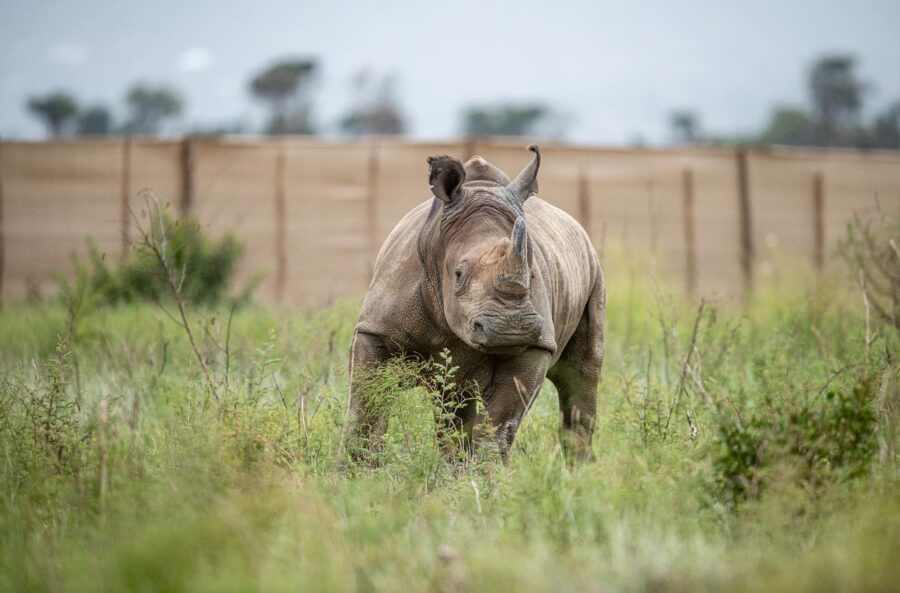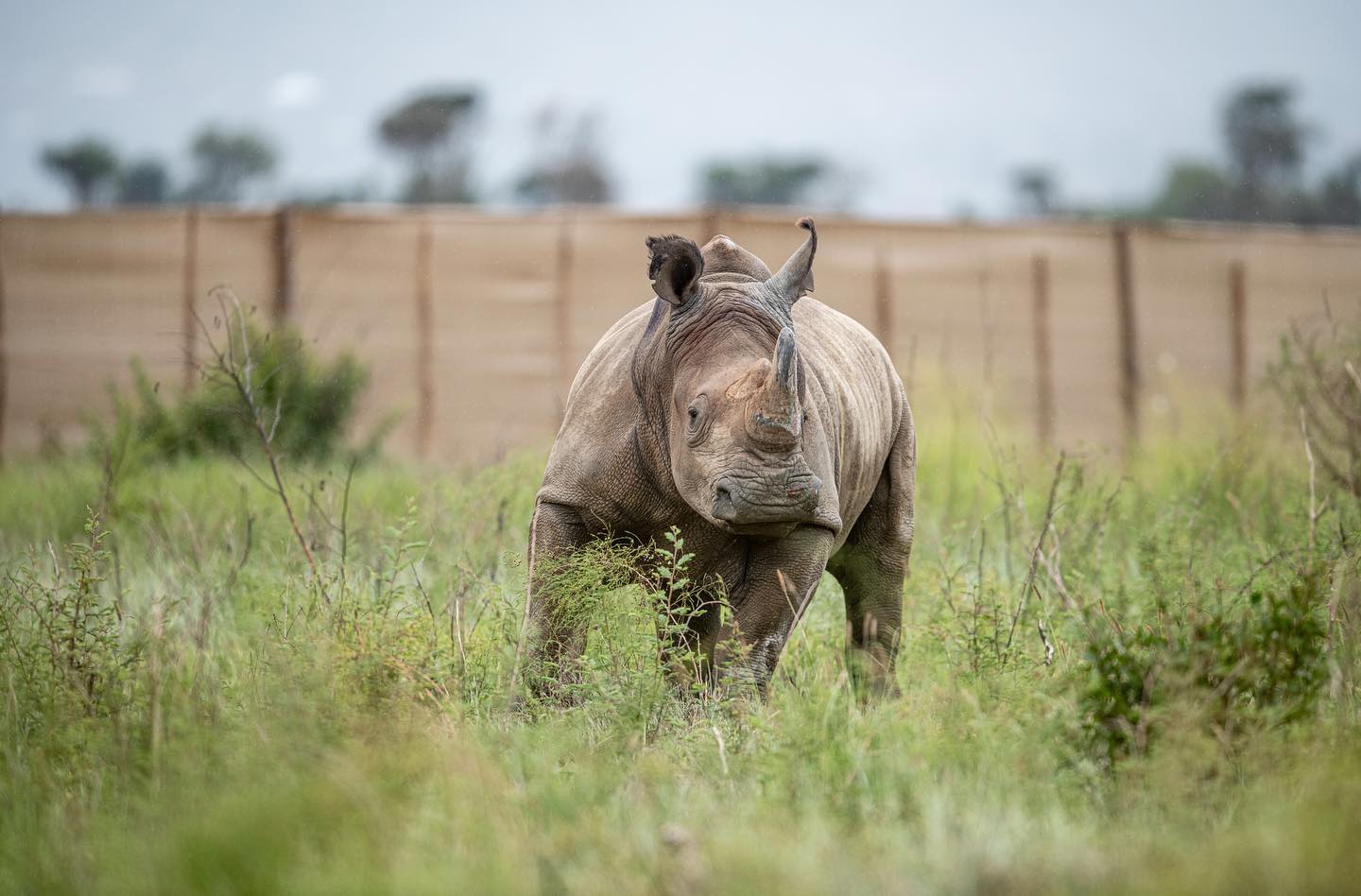
South Africa Sends 30 Wild White Rhinos to Rwanda in Largest-Ever Single Translocation for Conservation
KIGALI, RWANDA: In the largest single rhino translocation ever undertaken, 30 white rhinos have been successfully translocated from &Beyond Phinda Private Game Reserve in South Africa to Akagera National Park in Rwanda. andBeyond Travel revealed in a post today – 29 Nov – from Rwanda: “30 years ago, when our dream started, there was not […]

KIGALI, RWANDA: In the largest single rhino translocation ever undertaken, 30 white rhinos have been successfully translocated from &Beyond Phinda Private Game Reserve in South Africa to Akagera National Park in Rwanda.
andBeyond Travel revealed in a post today – 29 Nov – from Rwanda: “30 years ago, when our dream started, there was not a single white rhino on &Beyond Phinda Private Game Reserve. Now, 30 years later, we were able to take part in the largest ever rhino translocation in partnership with African Parks and Rwanda Development Board (RDB), with funding provided by the Howard G. Buffett Foundation. (Howard’s father is billionaire and philanthropist Warren Buffett.)
In a joint press release, the parties said the historic initiative aims to extend the white rhino range and create a secure new breeding stronghold in Rwanda, supporting population growth to ensure the long-term survival of the species in the wild as high-levels of poaching in South Africa continue to exert unsustainable pressure on current populations.
andBeyond Travel said the aim is to create a “new secure breeding stronghold in Rwanda where the population can grow and thrive.”
Over the next six weeks, the rhinos will be closely monitored on a daily basis by a dedicated team, and a specialist veterinarian, as they acclimatise to their new home. Each rhino has been fitted with a transmitter to enable constant monitoring, plus a canine anti-poaching unit and helicopter surveillance are also in place to provide further support for their long-term protection.
The RDB and African Parks have been partners in the management of Akagera National Park since 2010, transforming by overhauling the law enforcement and putting robust community programmes in place, allowing for wildlife to increase with key reintroductions of lions in 2015 and black rhinos in 2017 and 2019.
“Thanks to a significant improvement in security, as well as crucial community programmes, they have ensured that this is a safe and ideal environment for the continual reintroduction of new species,” said andBeyond.
“We are incredibly proud to have partnered with these organisations in this historic move to ensure the longevity of an iconic species like the white rhinoceros.”
Akagera is poised to become a globally important sanctuary for black and now white rhinoceros, vital for the conservation of these incredibly threatened species.
The 30 rhinos – 19 females and 11 males – were flown to Rwanda from South Africa, and transported to Akagera National Park on Saturday (27 Nov). Their journey covered a total distance of over 3,400 km and forms the largest single rhino translocation in history.
WATCH 30 white rhinos leave South Africa for Rwanda
“Introductions to safe, intact wild landscapes are vital for the future of vulnerable species like white rhino, which are under considerable human-induced pressures,” said African Parks’ CEO Peter Fearnhead. “We’re grateful to our partners for making this historic translocation possible – the Rwandan Government for their forward-thinking conservation leadership, and the Howard G. Buffett Foundation and andBeyond for their integral support. Successes in parks like Akagera in Rwanda and Phinda in South Africa demonstrate how preventing the decline of nature propels prosperity and development.”
White rhinos are classified as near threatened with numbers declining across existing strongholds, largely due to poaching driven by demand for their horns. The introduction of southern white rhinos to Akagera expands their range to offer more safe area for the species. The successful conservation management of Phinda in South Africa makes the reserve a valuable source for important new rhino subpopulations.
“We have meticulously managed and grown the rhino population at Phinda over 30 years,” says Simon Naylor, andBeyond Phinda Conservation Manager. “This has been recognized in many ways, including being selected as the first private reserve to receive animals as part of the WWF Black Rhino Range Expansion Project in 2004. We are dedicated to ensuring the survival of the species throughout Africa and are proud to have provided healthy rhino, as well as volunteered our translocation skills, to help boost the creation of a new breeding cluster in Akagera.”
In 2010, the Rwanda Development Board and African Parks partnered to manage Akagera,
transforming the park into one of the most coveted wildlife destinations in Africa and a sustainable revenue source for the region’s communities. Law enforcement was overhauled and robust community programs put in place, allowing for wildlife to increase and for key reintroductions to occur, such as lions in 2015 and black rhinos in 2017 and 2019.
Howard Buffett said: “Our Foundation is pleased to continue to invest in Akagera’s remarkable transformation into a critical national park for Rwanda and an example of responsible conservation for the African continent and the world. While our funding is an important contributor to that success story, none of this would be possible without the leadership of the Government of Rwanda and the dedicated efforts of African Parks.
“It was deeply personal for me to support the first black rhino reintroduction to Akagera in 2017 and it’s incredible that we have the opportunity to support this historic translocation today. Akagera is now positioned to become a key rhino stronghold for the continent, demonstrating what is possible in conservation when public and private partners collaborate.”
All those involved are now looking forward to a new generation of White Rhinos being born in Rwanda in two years’ time.
